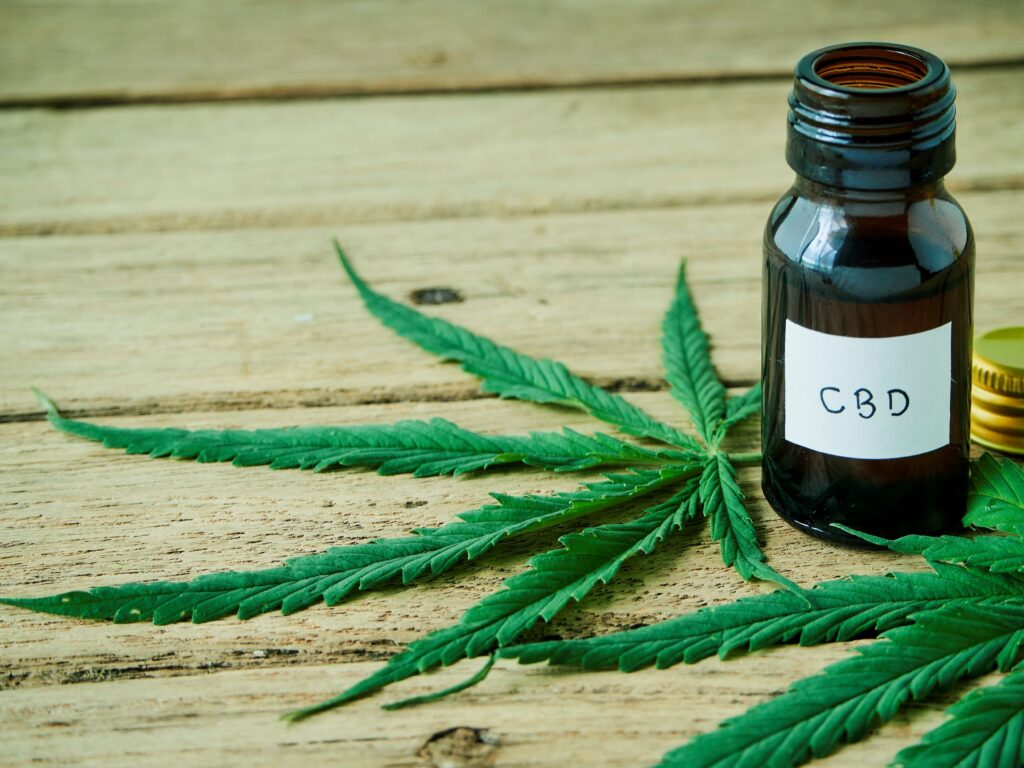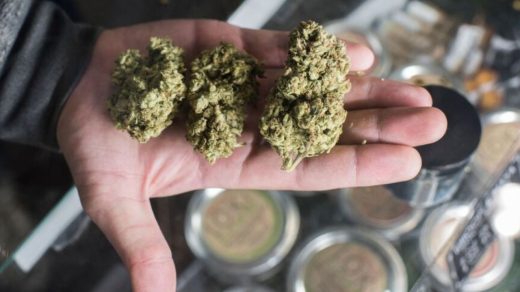Introduction
The use of CBD (cannabidiol) has become increasingly popular in recent years, with many people turning to it for various health and wellness purposes. However, for pregnant individuals, concerns arise about the safety of using CBD during pregnancy. This article explores the potential risks and benefits of CBD use during pregnancy, shedding light on the limited scientific research available and the precautions expectant mothers should consider.

Understanding CBD and Pregnancy
CBD is a non-psychoactive compound derived from the cannabis plant. It has gained attention for its potential therapeutic benefits, such as pain relief, anxiety reduction, and anti-inflammatory properties. However, because CBD is derived from cannabis, it is essential to differentiate it from THC (tetrahydrocannabinol), another well-known cannabis compound responsible for the plant’s psychoactive effects.
During pregnancy, women often experience a range of physical and emotional symptoms, including pain, anxiety, and nausea. Some individuals consider using CBD as a natural remedy to alleviate these symptoms. However, it is crucial to examine the available scientific evidence and consult healthcare professionals before making any decisions regarding CBD use during pregnancy.
The Lack of Comprehensive Research
One of the main challenges in assessing the safety of CBD during pregnancy is the limited research available. Due to ethical and legal concerns, conducting extensive studies involving pregnant women and CBD is challenging. Consequently, much of the existing information is based on animal studies and anecdotal evidence.
Key Points from Available Research:
- Placental Barrier: Studies have shown that THC can cross the placental barrier and potentially affect the developing fetus. While CBD is not psychoactive like THC, it is important to investigate whether it can also cross the placenta.
- Animal Studies: Some animal studies have indicated potential risks associated with CBD during pregnancy. These studies have shown adverse effects on fetal development in animals exposed to CBD, such as altered brain development and behavior.
- Breastfeeding: CBD can be present in breast milk, which raises concerns about its potential impact on nursing infants.
- Drug Interactions: CBD can interact with medications. Pregnant individuals who are taking other medications should consult their healthcare providers, as these interactions may have implications for maternal and fetal health.
Potential Risks of CBD During Pregnancy
Based on the limited research available and the known effects of CBD, several potential risks associated with CBD use during pregnancy should be considered:
- Fetal Development: Animal studies have suggested that CBD may impact fetal brain development. This is a significant concern, as any substance that could potentially affect the developing brain should be approached with caution during pregnancy.
- Placental Barrier: While it is not yet clear whether CBD crosses the placenta in humans, the possibility exists. If it does, this could expose the developing fetus to CBD, and its effects are unknown.
- Breastfeeding: CBD can be transmitted through breast milk, and its long-term impact on infants is unclear.
- Lack of Regulation: The CBD market is largely unregulated, which means that the quality and safety of CBD products can vary widely. Pregnant individuals who choose to use CBD should seek products from reputable sources and ensure they contain no contaminants or THC.
Benefits of CBD During Pregnancy
Despite the potential risks, some pregnant individuals have reported experiencing benefits from using CBD. These perceived benefits may include:
- Pain Relief: CBD’s analgesic (pain-relieving) properties may help alleviate pregnancy-related discomfort, such as Arthritis Pain, back pain or joint pain.
- Anxiety and Stress Reduction: Some expectant mothers use CBD to manage anxiety and stress, which can be common during pregnancy.
- Nausea and Vomiting: CBD’s anti-nausea properties may provide relief from morning sickness and nausea associated with pregnancy.
- Sleep Improvement: CBD may help improve sleep quality, which can be challenging for pregnant women due to discomfort and hormonal changes.
Precautions for Pregnant Individuals Considering CBD
If a pregnant individual is considering using CBD for symptom management during pregnancy, several precautions should be taken:
- Consult with a Healthcare Professional: Always consult with a qualified healthcare provider before using CBD during pregnancy. They can provide personalized guidance based on the individual’s specific situation and medical history.
- Choose High-Quality Products: If CBD use is deemed appropriate, opt for high-quality products from reputable manufacturers. Look for third-party testing to ensure purity and potency.
- Monitor for Side Effects: Pay close attention to any adverse effects while using CBD and report them to a healthcare provider promptly.
- Consider Alternative Therapies: Explore non-pharmacological alternatives for symptom management, such as physical therapy, relaxation techniques, or lifestyle changes.
- Discuss with a Specialist: If specific symptoms, such as severe pain or anxiety, are challenging to manage, consider consulting with specialists who are experienced in treating pregnant individuals.
- Avoid THC: Ensure that CBD products used do not contain THC, as the psychoactive effects and potential risks associated with THC are more significant.
Exploring the Complexities of CBD Use During Pregnancy
As the debate surrounding CBD use during pregnancy continues, it’s crucial to delve deeper into the complexities surrounding this topic. Here, we’ll discuss some additional factors to consider when evaluating the safety and potential risks of CBD during pregnancy.
1. The Endocannabinoid System (ECS):
The endocannabinoid system (ECS) is a complex network of receptors and molecules that play a vital role in regulating various physiological processes, including mood, pain, and inflammation. Some proponents of CBD argue that it can help balance the ECS and contribute to overall well-being. However, the ECS also plays a crucial role in fetal development, particularly in the early stages. Altering its delicate balance through external cannabinoids like CBD raises concerns about potential impacts on fetal development.
2. The Entourage Effect:
The “entourage effect” is a theory suggesting that the various compounds found in the cannabis plant work together synergistically, enhancing the therapeutic effects while minimizing adverse reactions. While this theory has implications for CBD’s efficacy, it also underscores the importance of using full-spectrum CBD products cautiously during pregnancy. The presence of multiple compounds, including THC, could pose additional risks.
3. Individual Variation:
Every pregnancy is unique, and individuals may respond differently to CBD. Factors such as genetics, metabolism, and overall health can influence how CBD is processed in the body. This variation highlights the need for individualized guidance from healthcare professionals when considering CBD during pregnancy.
4. Lack of Regulatory Oversight:
The CBD market is largely unregulated, making it challenging for consumers, including pregnant individuals, to determine product quality and safety. Without standardized testing and labeling practices, the risk of exposure to contaminants or unexpected levels of THC is a concern.
5. Alternative Therapies:
While CBD has gained attention for its potential benefits, alternative therapies and interventions are available for managing pregnancy-related symptoms. These may include physical therapy, acupuncture, mindfulness-based stress reduction, and dietary modifications. Exploring these options with healthcare providers can provide viable alternatives to CBD.
6. Ethical Considerations:
Conducting clinical trials involving pregnant women is ethically complex, which contributes to the scarcity of research in this area. Pregnant individuals and healthcare professionals must navigate the challenge of making informed decisions based on the limited available data.
7. Postpartum Considerations:
The potential impact of CBD on postpartum individuals and breastfeeding infants is an important aspect to consider. Breastfeeding can transmit substances, including CBD, to the infant, which raises questions about its safety during the postpartum period.
8. Legality:
The legal status of CBD varies by region, with some areas permitting its use for certain medical conditions. Pregnant individuals should be aware of their local laws and regulations regarding CBD use.
Conclusion
The use of CBD during pregnancy remains a topic of debate and uncertainty due to the limited scientific research available. While some pregnant individuals report experiencing benefits from CBD, potential risks associated with fetal development, placental transfer, and breastfeeding are significant concerns.
Ultimately, the decision to use CBD during pregnancy should be made in consultation with a qualified healthcare provider who can weigh the potential benefits against the potential risks, consider individual circumstances, and explore alternative treatment options. Until more comprehensive research is available, caution is advisable to prioritize the well-being of both the pregnant individual and the developing fetus.




